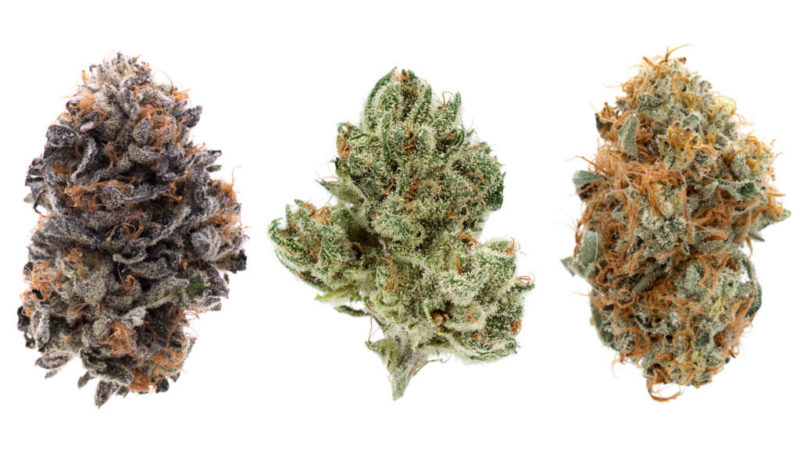Will U.S. Nursing Homes Allow Cannabis for Patient Care? – 2024 Guide

When you hear about medical cannabis in a long-term care facility, do you imagine seniors with bongs? That could not be more inaccurate. First of all, in public health buildings, all smoking is banned. And that includes cannabis. But smokable cannabis is only one of many intake options, including capsules and tinctures (drops).
A nursing home can seem like a strange place for medical cannabis until you think about seniors’ health conditions. Did you know that opioid medications are often overused on patients who have dementia? Even if the patient does not need pain relief all the time?
Many studies suggest that opioids make the pain worse over time instead of making pain symptoms easier to manage. Seniors that have been using opioids for an extended period need a better alternative. And some health care institutions believe medical marijuana is a better choice.
Not only can therapeutic cannabis provide adequate pain relief, but it may help with other conditions. Some studies suggested that cannabinoids may provide powerful anti-inflammatory benefits.
Controlling inflammation may help reduce the progression of certain diseases like Parkinson’s or Alzheimer’s. And for patients with diabetes, it may also help minimize vision loss (retinopathy) and nerve damage. New studies also suggest cannabis may reduce the growth of cancerous tumors.
Will American seniors in long-term care have the option to explore medical cannabis? Some states are already working on legislation. And one nursing home in New York is already providing it.
Can a Senior in a Long-Term Care Facility Apply for a Medical Card?

img source: britannica.com
By 2050, it is estimated there will be over 87 million seniors aged sixty-five (65) and older. About 52% of American seniors will need long-term care services. That means 45.2 million seniors in nursing homes or other long-term care facilities in the next thirty years.
From a healthcare management perspective, opioids cannot be the answer. Not only do opioid medications amplify pain over time, but they are highly addictive, according to an article on MarijuanaDoctors.com.
There are many side-effects with opioids that would put seniors at risk, including:
- Chronic constipation
- Nausea and vomiting
- Increased pain sensitivity
- Confusion
- Drowsiness
Increasing tolerance to pain medications (requiring higher doses)
One of the greatest threats for seniors using opioids is reduced balance and hand-eye coordination. The sedative effects of opioids can increase the risk of trip and fall injuries. Seniors with osteoporosis face increased complications from bone density loss. And soft tissue injuries can cause a life-threatening blood clot.
Right now, a patient living in a nursing or retirement home can apply for a medical card. And they may be issued one. However, cannabis products remain banned in most healthcare facilities. But that may start to change very soon. Many caregiver family members are advocating for access to medical marijuana in nursing homes.
Are There Any Nursing Homes That Allow Medical Cannabis?

img source: jpm.rs
Many institutions would like to provide medical cannabis to their patients. But it’s legally complicated. As long as cannabis remains a Schedule II drug on the Controlled Substances list, it remains a problem.
Both federal and state governments fund all healthcare organizations. Funding can be affected by any institution that provides medical cannabis. So, doctors are stuck between a rock and a hard place. They know their patients may benefit from it, But they also do not want to risk legal and regulatory fallout.
On March 2, 2024, the State Legislature in Virginia announced Senate Bill 185. The new law would allow family members and healthcare providers with another alternative. They would be able to recommend and provide medical cannabis for a loved one in long-term care. Other states may follow in the next two years.
In 2017, Etain Health of New York contracted a nursing home located in the Bronx. The medical dispensary was legally permitted to serve long-term care residents. And consult with families regarding medical cannabis options. Time’s are changing. And that may be excellent news for seniors in assisted living.
How Can You Figure Out What Strain and Potency are Best for the Patient?

img source: weedmaps.com
Seniors living in long-term care facilities may need pain relief. But not at the cost of remaining alert. That is one of the benefits of medical cannabis. There are certain strains that provide analgesic (pain-relieving) results without drowsiness. And those cannabis strains may be safer for geriatric use both at home and within institutionalized care.
Strains that fall into the category of pain relief (without sedative side-effects) include:
- Durban
- Lemon G
- Harlequin
- Cannatonic
Seniors who have chronic pain may also experience problems sleeping. Long-term insomnia can do more than alter mood and energy levels; it can reduce immune function.
This can put seniors at a higher risk of bacterial or viral infections. And it can also slow healing after injuries or surgical care.
Strains that provide pain relief and a sedative effect to help with insomnia include:
- Sour Diesel
- Grandaddy Purple
- Blueberry Kush
- Northern Lights
Some seniors in long-term care may have health conditions that suppress their appetite. Nutrition is an important wellness priority. However, certain prescription medications can cause vomiting and nausea, as well as digestive problems.
Patients who are undergoing cancer treatments and chemotherapy may also experience unwanted weight loss. Cancer patients can experience loss of the sense of taste or smell during therapies. And that can make food unpalatable.
There are many cannabis strains that are used therapeutically to stimulate the appetite, including:
- Thin Mint GSC
- Purple Kush
- Chemo
- Monster Cookies
There are over seven-hundred (700) recognized strains of cannabis in the United States.
Some are CBD dominant with high anti-inflammatory potential. Others can increase alertness and mental acuity, such as creative Sativa’s. Many strains can replace prescription medications (under doctor supervision) and provide better results for seniors in long-term care.
What Might the Future of Long-Term Senior Care Look Like With Legalized Cannabis?

img source: businesswest.com
In the future, we may see the integration of medical marijuana dispensaries. Or a budtender who is employed full time by a nursing home. Someone knowledgeable to provide the staff with recommendations. And someone they can trust for safe handling. Including purchase and inventory of medical cannabis.
A registered pharmacy technician may receive specialized training to dispense cannabis in a long-term care setting. Nurses could also receive training for therapeutic recommendations and review with primary care physicians within the institution.
The idea of adding a dispensary counter in nursing homes is interesting. It could allow family members to consult on behalf of loved ones. Family members act as patient advocates. And the caregiver can also be part of treatment planning with medical cannabis.
Ultimately, as thirty-six states in America have legalized medical cannabis, refusing access to LTC seniors could be unconstitutional. And while federal institutions would not allow medical cannabis while it remains a prohibited Schedule I drug, private or state-run facilities could.
What could that mean for seniors in long-term care? A new and more natural alternative to harmful and addictive pain medications. The possibility of better symptom management and increased quality of life. And as the Baby Boomer population segment nears the age of assisted living, they may strongly advocate for medical cannabis as a safer treatment option.
